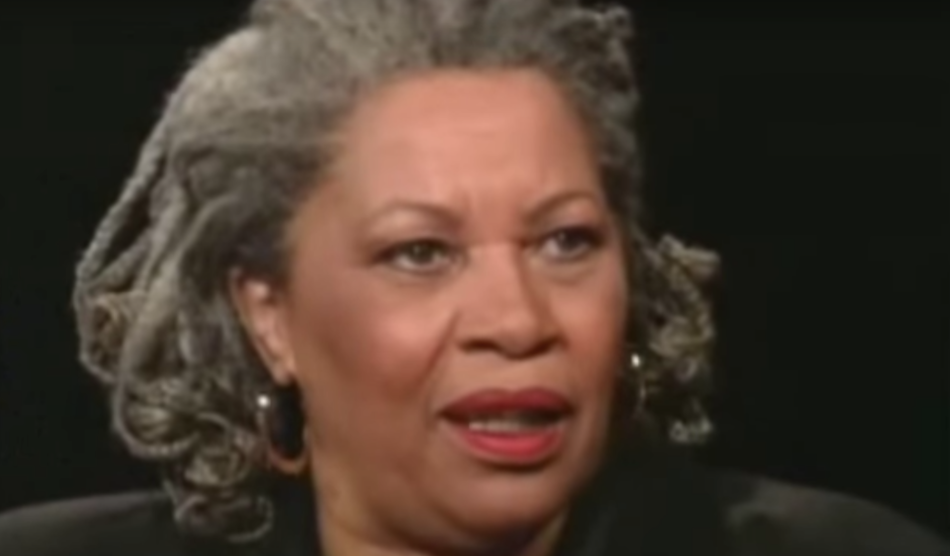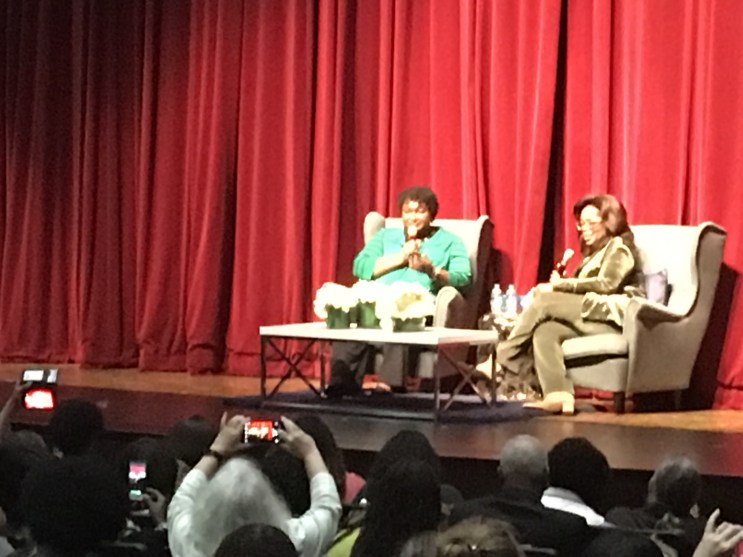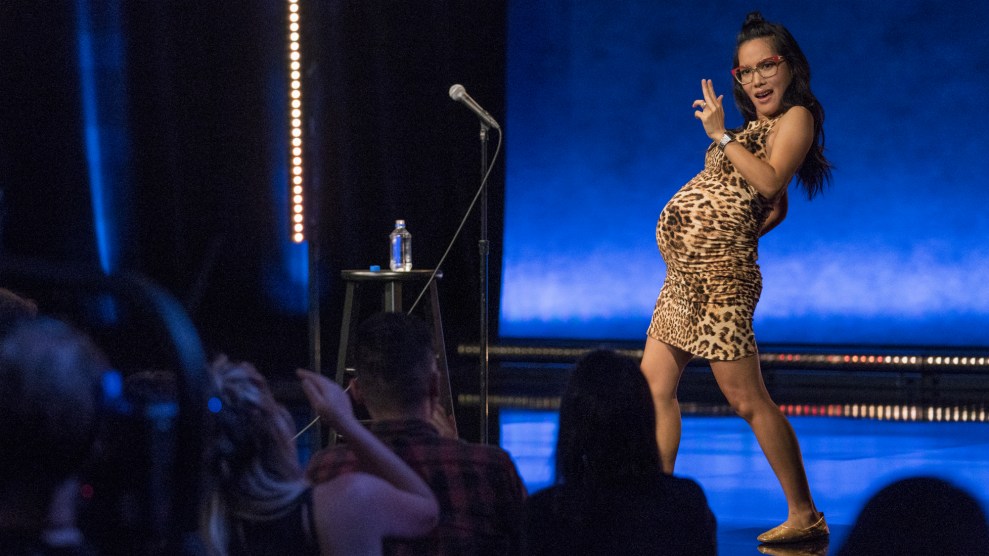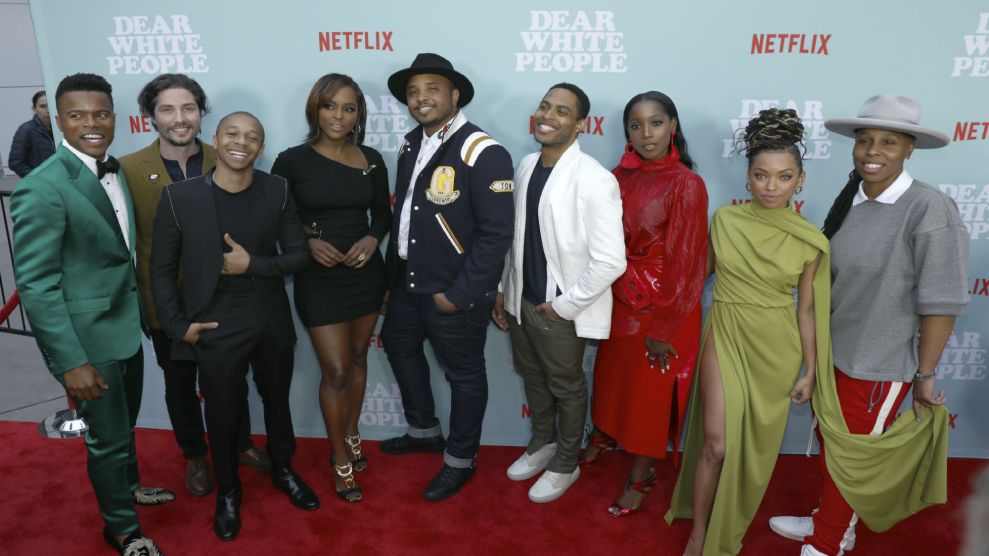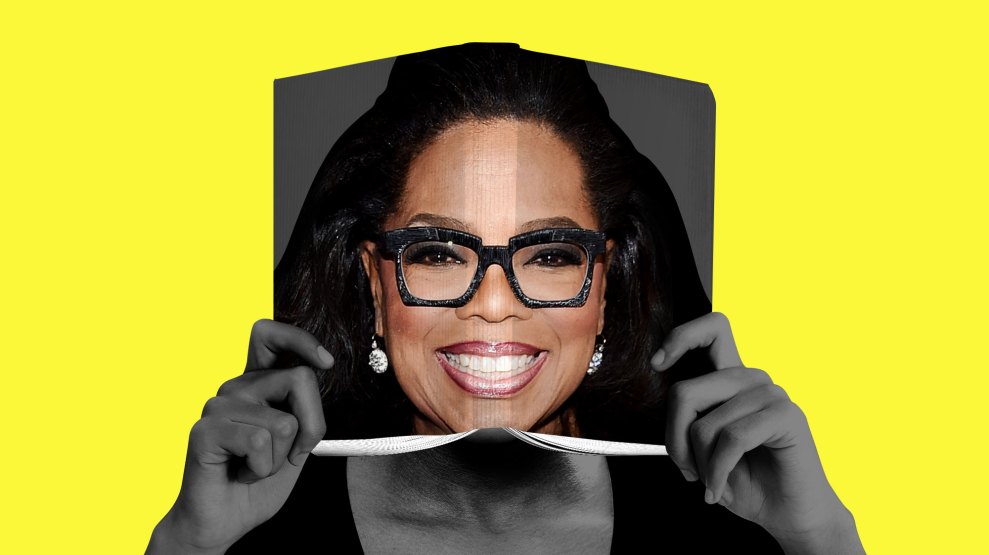
Mother Jones illustration; Dimitrios Kambouris/Getty
When Colson Whitehead got the call, he’d just landed in North Carolina to do a reading at Duke. He was still on the plane when, he told the Guardian, “I called [my agent] back and she said, ‘Oprah.’ I said, ‘Shut the front door,’ because I didn’t want to curse. She said, ‘Oprah book club.’ I said, ‘Motherfucker.’”
Whitehead’s sixth novel, The Underground Railroad, getting chosen by Oprah was a door opening, or really more one blasting open—and Whitehead clearly knew it. Oprah’s stamp of approval on your book can make your career, massively boost your book sales, and get your book into the mainstream like really nothing else can, even a Nobel Prize. I mean, look at Toni Morrison. While I want to be clear that she is a literary genius whose impact was immense long before she got popular attention, consider that when Morrison’s debut novel, The Bluest Eye, was first published in 1970, it sold just 2,000 copies, according to Quartz. After being featured as an Oprah’s Book Club pick in 2000, it sold 800,000 copies.
I was in middle school on September 17, 1996, when Oprah Winfrey stood in front of a studio audience in Chicago and announced she was starting the book club. But even though I didn’t consider myself—a basketball-loving tomboy growing up in San Francisco—part of her target demographic, I couldn’t escape her reach back then, and still now. This book club, through several evolutions and iterations, is the only part of the sprawling Oprah empire I genuinely care about. Her book club, for me—and I suspect a lot of other people, particularly in my age bracket—is the most culturally resonant part of her powerful legacy. I didn’t watch her talk show, am grumpily and somewhat naturally predisposed to be skeptical of her enthusiasm for All The Things, and despite my being a Leo and an only child, still can’t quite fathom putting my own face on the cover of a magazine every month for two decades.
But it would be treasonous to book nerds everywhere not to acknowledge the outsize impact Oprah’s had on publishing. And me. If one of the Oprah seals of approval catches my eye at the bookstore, I can’t help but stop. And with the club relaunching this month on Apple TV Plus, it’ll reach a whole new generation of people who I hope will get the same excitement finding the little orange O on a cover’s corner.
This is not just about the woman having good taste. This is about how Oprah, Patron Saint of Palatability, tells her millions of viewers not just that they should read, but what they should read. And, critically, those picks are often black writers who make race and America’s torrid racial history the center of their work. Of the 81 books Oprah has chosen since 1996, almost 30 are by authors of color. That’s not a bad track record—and the frequency of those picks has only increased in more recent years. She’s made black literature popular literature, from Morrison’s Paradise to Whitehead’s Underground Railroad to Imbolo Mbue’s Behold the Dreamers. (Though this power can also boost people like Bill Cosby, who had three books on the list, and James Frey and his disgraced memoir, I’d argue it’s mostly been used for good.) She made what were largely taboo issues part of the pop culture conversation. She has the power to alter a reader’s perspective—on issues like reparations, slavery, and incarceration.
“It’s been so wonderful to see her use [her] platform to say, ‘I am invested in the stories that African Americans have to tell. And I believe that these stories are universally compelling,'” says Lisa Lucas, executive director of the National Book Foundation, which hosts the prestigious National Book Awards. “I think that has helped change the reception of stories that might’ve been marginalized otherwise.”
For writers like Nicole Dennis-Benn, praise from Oprah is also validation of their own work. “Of course [my] stories are told through Jamaican, working class women. They tackle universal themes like immigration, motherhood, belonging, acceptance, sexuality, colorism, classism, all those things,” she says of her two books, Patsy and Here Comes the Sun, which were both top picks in O, the Oprah Magazine. “I am so happy though that people are now seeing our stories and getting to kind of empathize with people who definitely look different from them or someone different from them.”
She adds, “I’m putting these untold stories out there, because as a girl growing up, these stories were kind of hush-hush, they were gossip. But to have our stories out there as working-class Jamaican women, people seeing us and hearing our voices, it means a lot to me.”
Back in ’96, when Oprah wanted to indulge with the world in her favorite pastime, it probably seemed like just that: an indulgence. “I wanna get the whole country reading again!” she beamed, as the camera panned to an audience of hopeful-looking women, most of them looking eager, blond, white.
But this in and of itself was an important image: A black woman born into poverty in Mississippi was just about singlehandedly dictating the tastes of a key, moneyed demographic of white women, who happened to influence white households and their buying practices, and also drive mass culture.
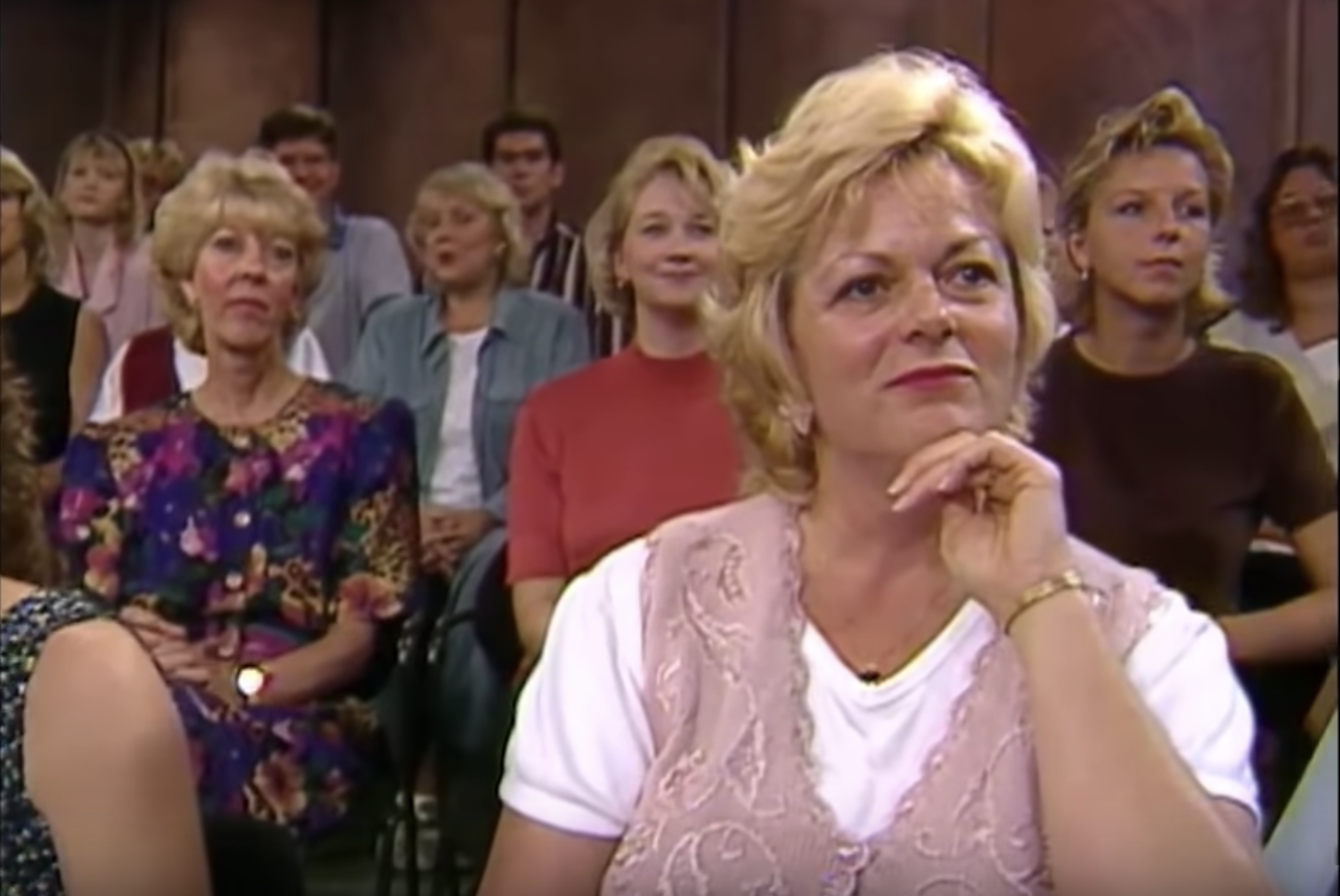
Sure, you could say Oprah wasn’t the first black woman to do such a thing. America’s cultural landscape is littered with the penniless carcasses of black women who shaped film and music in their day, from Billie Holiday to Josephine Baker. But Oprah represented something altogether different. She didn’t make culture so much as she anointed it. As America’s ultimate tastemaker, she was an influencer before there were influencers, as Lucas puts it to me. And unlike her predecessors, Oprah was actually acknowledged and compensated—beyond even her wildest imagination—for that work.
Crucially, so were the people she deemed worthy.
In an interview with Vibe in 1998, Morrison explained that Oprah was making books part of the public discourse in a way that had never quite happened before. “Most book shows on television miss the point because they’re teacherly, I-know-it-you-don’t, elitist,” Morrison said. “It’s not open, friendly, we’re both in this together. And it’s off-putting for the non-reader, non-browser, non-academic person.” Importantly, she added, “The bestseller sells to people who don’t buy books.”
Oprah brought Morrison to the fore of America’s popular masses in a way that the writer’s greatest literary achievement—the 1993 Nobel Prize for Literature—simply did not. Morrison was a black woman who wrote about black womanhood from all manner of lived experience, from pliable girlhood (The Bluest Eye) to defiant motherhood (Beloved). Eventually, four of Morrison’s titles made Oprah’s list—more than any other author. But most importantly, Oprah used her platform to publicize Morrison, offering viewers an intimate look at a decorated female author’s path as a working mother who hadn’t started writing seriously until her 30s. This was probably Oprah’s greatest genius: her ability to make extraordinary people seem ordinary, and to make other people relate to them and thus connect with them. Morrison was brilliant, yes. But she was also tired, overburdened by her obligations to other people, and still learning to prioritize her own desires, as she describes in 1996 at Oprah’s dinner table:
Now Oprah is extending this tradition in the third iteration of her book club. To kick off the partnership with Apple, which officially begins November 1, Oprah chose one of the most anticipated books in years: Ta-Nehisi Coates’ debut novel, The Water Dancer, which follows a man born into American slavery who discovers a miraculous superpower. “I have not felt this way about a book since Beloved,” Oprah has gushed in interviews.
Last year, when it was announced that Oprah had signed a deal with Apple for undisclosed gobs of money, it would have been easy to write the whole thing off as another mogul teaming up with a tech giant to do evil. In a society where everyone is polarized and everything is problematic, the term “influencer” is barreling toward the phrases “billionaire” and “techie” as pejoratives.
“I can do whatever I want,” Oprah bragged to Ellen DeGeneres recently, before noting that she’ll dabble in documentaries and occasional interviews. Oprah’s Book Club will be “in a billion pockets, y’all,” as she told Ellen—meaning her picks will be given prime real estate in the iBook store, and her interviews with authors will likely live on pre-installed iOS software in the Apple TV Plus app on your iPhone. There’s also a standalone Oprah’s Book Club app in development and broad yet vague plans to create an engaged community on Instagram, and even a hashtag: #ReadWithUs.
This new iteration of the book club will be more consistent with six picks per year, while in past years there was no real timetable. And it will somewhat formalize what previously felt like a coincidence, by more sharply focusing the conversation on race and once-forbidden issues. “One of the hopes in this iteration of the book club for Oprah is that many of the books that she picked will be novels or memoirs [that] can start conversations around urgent relevant topics,” says Leigh Haber, books editor for O, the Oprah Magazine and coordinator of Oprah’s Book Club. “I think Oprah is drawn to stories of people who are underserved, and [Oprah’s Book Club] will primarily focus on books with relevant social themes.”
Like Morrison was when she was picked by Oprah, Coates is of course already incredibly successful: A heralded essayist with three works of nonfiction under his belt, his fame is such that he’s now casually mentioned by other artists like Chance the Rapper and Black Thought in songs. His latest book was likely to break through, though it was not assured. But Oprah’s blessing seems to have guaranteed that it shot up the New York Times bestseller list before the book’s official release in September. And she’s boosted the book alongside Coates on the morning talk show circuit—where the masses were finally introduced to Coates, the person.
“The idea with The Water Dancer by Ta-Nehisi Coates [is] to engage in conversation around reparations, around the legacy of slavery. Even around something like when you refer to an enslaved person as a slave, it robs them of their identity,” Haber says. “And I think the books, and the authors, give Oprah the opportunity to engage deeply in conversation about topics that are very, very important to her and to the rest of us. That’s the goal.”
For Coates’ part, he told his hometown paper, the Baltimore Sun, “I was just as surprised as anybody” to be chosen. But he was delighted by the conversation that followed. “I was really happy…But I think the most encouraging part was that she’s a reader. It was clear from the conversation that she’s a reader. This is not a marketing ploy. There’s nothing to be cynical about.”
To come back again to Morrison, Oprah popularized what was once the domain of the elite, so it’s no surprise there are scores of other book clubs that have popped up in its image. There are a slew of other celebrity ones—hi, Reese Witherspoon—and there are even a few that have devoted themselves to the still radical act of black women who read. Well-Read Black Girl, for instance, is a mostly online reading community created by Glory Edim. It now has a community of more than 50,000 followers on Twitter, and the club brings together readers and black women literary stars like Jacqueline Woodson and Nic Stone at an annual festival. Edim tells me she started reading books along with Oprah back in high school.
“Well-Read Black Girl would not exist without her life and legacy,” Edim tells me. To underscore that point, Edim giddily recounts meeting Oprah at a recent invite-only launch event for The Water Dancer in New York City. In a video of their encounter, Oprah holds a copy of Edim’s recently published anthology of writings by authors featured by the book club. “Well-Read Black Girl, that’s what I am already,” Oprah says to the camera.
After some prodding by Edim, Oprah stresses the point further: “I am the original,” she laughs.
Y’all, I’m standing next to one of my greatest inspirations – @OPRAH! LOOK AT MY FACE 😭 It’s a mixture of joy, gratitude, & disbelief! I see the world through the lens of narrative & story – it’s how I learn & grow 💕 I cultivated this unique skill by watching Oprah BE OPRAH 📖 pic.twitter.com/eUq5g4w6Z9
— Well-Read Black Girl ™ (@wellreadblkgirl) September 24, 2019
I too am in a book club. For the past decade or so, a group of three friends and I have met once every few months on Google Hangout to talk about books on a Friday night. It’s been one of the most consistent joys in my life, if for no other reason than I get to use books to connect with people who I’d otherwise probably lose touch with. And, like Edim, this joy began with Oprah. In high school, when I sought solace in an Oprah-approved Wally Lamb, who in different circumstances I would not have gotten to know, I felt seen as the emo teen I was, and one who was starting to sift through a complicated family history. More recently, after Oprah picked Tayari Jones’ An American Marriage, I went down the rabbit hole of Jones’ three previous novels, which reinforced the idea that reading can be a solitary act that’s part of a collective rebellion.
Oprah is a celebrity who has been famous since before I was born. But she’s also a black woman whose most influential gift to the world has been her discerning taste as a reader. That’s no small thing in a country that once forbade black people from learning how to read and write. That’s no small thing to a girl like me, a black girl, who loves to read.

